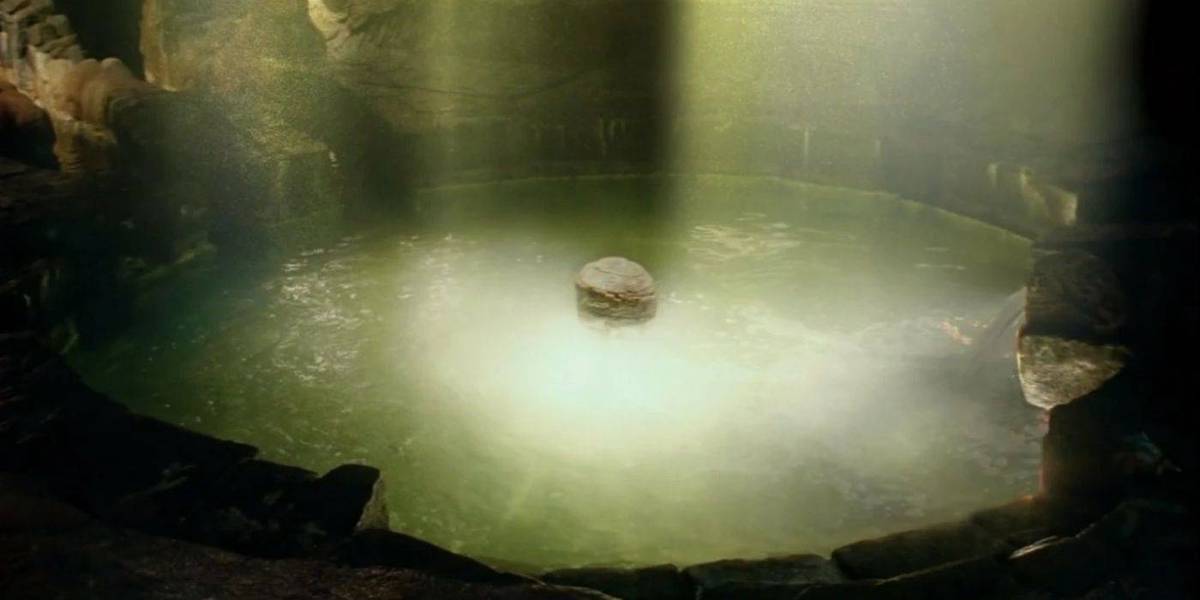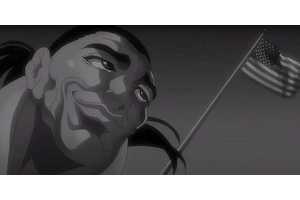10 Great TV Mysteries That Were Deliberately Left Unanswered
The world of TV is full of unanswered mysteries, many of which are left deliberately open by showrunners willing to tease and confound their audiences. For the most part, unanswered questions on TV are the result of great shows being canceled too early, never getting the chance to pay off the small seeds of mystery they planted early on before being axed by a network. In rarer cases, however, a series successful enough to dictate its own pace will knowingly leave open-ended enigmas with no concrete answer, fueling fan discussion years later.
Obviously, many fantastic mystery series are adept at getting away with this kind of ambiguous storytelling, able to leave some questions unsolved so long as concrete answers are provided for the bigger ones. But the idea of a major plot point that intentionally remains up-for-interpretation isn't restricted to shows primarily centered on a mystery, with fun comedies and straightforward dramas also getting in on the action. For dedicated TV fans, unsolved mysteries are simply a fact of life.
10 What Would Happen In Lost If The Heart Of The Island's Stone Wasn't Replaced?
One of many bizarre lingering threads for the infamous series
Once upon a time, Lost felt like the most popular show of all time, but as the years go by, its cultural impact has quickly eroded. To this day, no other show is more infamous than frustratingly vague cliffhanger mysteries than Lost, which followed the survivors of a deadly plane crash who find themselves on a mysterious island. Of Lost's many unanswered questions, one of the most crucial surrounds a seemingly magical location integral to the lore of the island: a small grotto called the Heart of the Island.
In The Heart of the Island, a lone stone sits on a pillar. Jacob theorizes that this stone, along with the island itself, holds back some ill-defined "evil" from pouring into the world, and his ideas certainly seem to be true when Jack briefly removes the stone, causing the entire island to tremble with rage as a sinister red glow emanates from the stone's resting place. Whether the Heart of the Island was holding back a portal to Hell itself or something even worse would remain one of the show's many lingering puzzles.
9 Is Leslie President At The End Of Parks & Recreation?
The natural conclusion of her government work
I would argue that The Office walked so that Parks & Recreation could run, finishing in a knowingly ambiguous ending that challenged protagonist Leslie Knope's ultimate fate. The second show to get in on the mockumentary comedy format, Parks & Recreation followed the government career of the peppy Leslie Knope and her co-workers. The final episode hurls the cast forward in time until it appears that Leslie, Ben, or both may have succeeded in attaining the ultimate government office.
By 2025 in the show's timeline, it's revealed that Leslie successfully ran for State Governor of Indiana. Reuniting with the old gang for Garry's funeral, Leslie and Ben are suddenly flanked by Secret Service members, heavily implying that one or both of them may have put in a successful bid for the presidency of the United States. However, no concrete mention of the office is ever given, and it's impossible to know exactly what Leslie and Ben's new positions were by the final scene in 2048.
8 Did Tony Truly Die At The End Of The Sopranos?
The infamous cut to black remains up in the air
A darling of prestige TV, The Sopranos centered on the life and times of the titular family, whose patriarch, Tony, is a high-ranking member of the New Jersey mafia. Framed through Tony's therapy sessions, the entire series is a psychological character study that also chronicles the tumultuous politics and shifting allegiances of organized crime. The Sopranos also features one of the most infamously ambiguous TV show endings of all time, ending things on a divisive note.
As the tension gradually built by the entire series continues to build, The Sopranos ends with Tony Soprano making a lot of enemies. In the final scene, Tony apprehensively sits down at a diner with his family before seemingly noticing someone off-screen, only for the camera to abruptly cut to black, ending the show. This jarring ending has been interpreted as Tony's death, being assassinated moments after the credits roll, but this has never been directly confirmed. The unconventional finale meant to convey that regardless of whether Tony survived his meal, someone would get him eventually.
7 What Was Will Trying To Say To Alicia In The Good Wife?
A tantalizing mystery moments away from being solved
One classic trope that TV shows have made heavy use of is the idea of an important line of dialogue that is interrupted or never clearly heard by the audience, teasing frustrated viewers with a near-miss for an answer to a juicy mystery. The Good Wife has one of the most proficient uses of this cliché. The series centers on Alicia, a homemaker, wife, and mother who is suddenly forced to re-enter the workplace after her husband, Will, has his career ruined by a mortifying corruption and sex scandal.
In the controversial episode Dramatics, Your Honor, Will finally pays the ultimate price for his crimes when he's shot and killed in the stunning courthouse shooting, which is almost heard in a devastating voice mail he leaves to his spouse. Will was on the verge of telling Alicia something incredibly important before getting back to court. Like Alicia, fans of The Good Wife could easily spend hours pouring over the mystery of what Will was about to tell her, but the show chose to leave his statement alluringly up to interpretation.
6 Who Is Game Of Thrones' Quaithe?
One of the show's only lingering plot threads
For how complex and labyrinthine the lore of Game of Thrones is, the series actually went out of its way to leave few mysteries unsolved, with everything from the birth of the White Walkers to John Snow's true parentage being neatly wrapped up by the end. Even if the disappointing Game of Thrones finale ended the iconic series with a whimper, it at least had the decency to answer most lingering questions. The only major exception is the identity of a certain Essos woman who helps Daenerys back in season 2.
While her dragons are still small and vulnerable, Daenerys finds herself in the mysterious city of Qarth, where shifting politicians and dangerous magic users seek to claim her beasts for their own ends. Daenerys is first warned of this treachery by Quaithe, a mysterious masked woman who seems to know too much about Daenerys herself and future events. Clearly a sorcerer of some sort in Westeros' low-magic setting, Quaithe's actual identity and motivations are never explained, as she never returns to the show after season 2.
5 Who Or What Is Bruce In Wilfred?
A remaining question mark the series never concludes
Another series revolving heavily around its many mysteries, Wilfred tells the story of Elijah Wood's Ryan, a depressed lawyer whose attempts to take his own life are suddenly interrupted by his neighbor's dog, Wilfred. While everyone else sees Wilfred as a normal dog, Ryan perceives him as an Australian man wearing a dog suit, and can even hear him talk. The mystery of this situation fuels the show's serialized drama in between the comedy antics, but the series finale conclusively revealed that Ryan's perception of Wilfred is totally the result of his own psychosis.
However, there are a few unanswered questions that aren't totally satisfied by this explanation, namely the presence of a man named Bruce. Bruce is an older man Ryan meets who is actually able to perceive Wilfred the same way Ryan does, even claiming to have had a lengthy history with the mutt. It's easy to assume Ryan imagined all of his interactions with Bruce in the same way, but if Wilfred was just a normal dog in reality, what exactly was Bruce doing with Ryan? Bruce is where the boundary between reality and Ryan's imagination gets even fuzzier.
4 What Happened To BOB In Twin Peaks?
One of Twin Peaks' many absurdist mysteries
Few shows can ever hope to be as shrouded in mystery as Twin Peaks, perhaps the magnum opus in the late great David Lynch's career. What begins as an atmospheric murder mystery set in the Pacific Northwest eventually evolves into something much more aligned with other Lynchian works like Eraserhead and Inland Empire that exist on the border of dreamlike reality and nightmarish fear. The culmination of this tonal shift is the appearance of BOB, Twin Peaks' ancient evil antagonist who was ultimately responsible for the muder of Laura Palmer.
At first, it seems as though BOB is killed by Freddie Sykes, shattered thanks to the use of a specialized tool designed to end his reign of terror once and for all. However, when Cooper travels back in time to 1989, he finds a different version of events in which BOB's influence on Laura seems to have gone another way. It's left unresolved as to what exactly happened to BOB in this new timeline where his ultimate prey seemingly got away from him.
3 The Mechanics Behind The Gossip Girl's Identity
The man behind Gossip Girl certainly managed to get around
It's telling that a series as reliant on its titular central mystery as Gossip Girl would have so many loose ends regarding the answer of the titular firestarter's identity. Gossip Girl centers on a group of preppy high school graduates whose lives are plagued by the blogger Gossip Girl, a mysterious identity who regularly stirs up trouble by texting scandalous details about the kids' lives. The eventual reveal of Gossip Girl's identity leaves more questions than answers.
It's eventually discovered that the person behind Gossip Girl isn't a girl at all, but the outcast writer Dan, whose impetus with the character was to apparently write Serena a seven-year love letter. But Gossip Girl was able to get the scoop on an incredibly wide range of events that Dan would essentially have to be omnipresent for, making the mechanics of his information gathering a glaring mystery. Not only that, but at multiple points Gossip Girl's exposes negatively affected Dan's life, a puzzling choice for Dan to make that suggests the writers weren't sure who Gossip Girl would be.
2 What Was On The Card Jim Wrote To Pam?
One of the biggest off-screen romantic gestures either
The Office is still renowned to this day for its ability to blend comedy with poignant relationship-building, especially with Jim and Pam's slow-burn romance. One of The Office's most emotionally devastating scenes is also one of its biggest mysteries, a key point in Pam and Jim's relationship that remains ambiguous. During Michael's disastrous Christmas gift exchange, Jim is eventually able to maneuver his heartfelt gift, a teapot filled with very personalized items, into Pam's hands.
The teapot contains a card that causes Pam to nearly burst into tears upon reading it, clearly marking a big step in her and Jim's relationship timeline. This marks one of the few moments in which the characters of The Office refuse to share their personal lives with the documentary crew, as Pam keeps the note to herself. What exactly Jim could've written that inspired such a reaction is the subject of endless debate, but the series left his words knowingly unsaid.
1 How Did The Tenth Doctor Convince Rose To Stay?
His words on Bad Wolf bay remain a whisper to viewers
The modern series of Doctor Who features a rare scene in which a previous mystery is called back to, only for the series to snub audiences of the answer once again in a tantalizing near-miss. David Tenant's tenth Doctor, a fan-favorite, is known for his romance with companion Rose, which is complicated when he is split into two time lords, one of which being a half-human clone. At this point, Rose calls into question something the Doctor had told her earlier in Black Wolf Bay.
While the original Doctor gives a non-answer, simply asking "Does it need saying?", the Meta-Crisis Doctor leans in and whispers something in Rose's ear. Evidently, Rose likes whatever he says, prompting her to kiss him and choose to remain with him forever. Though it's a cute moment, it's another example of a classic TV mystery left to tease the audience by way of a hushed or interrupted line of dialogue that somehow changes everything.

















